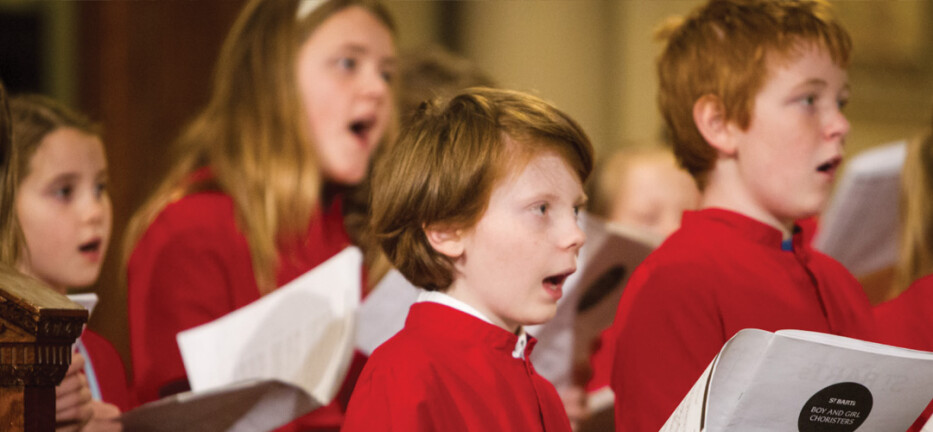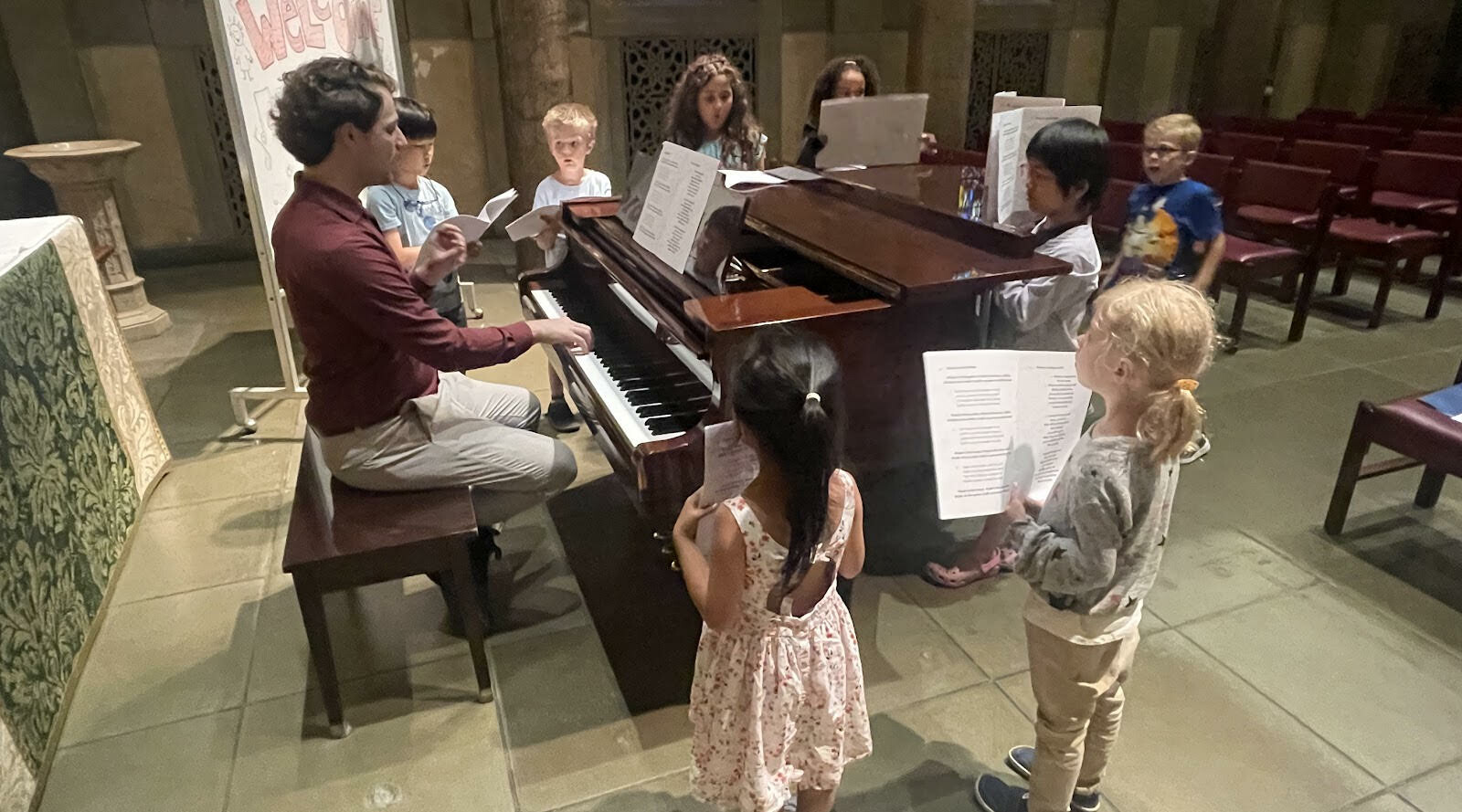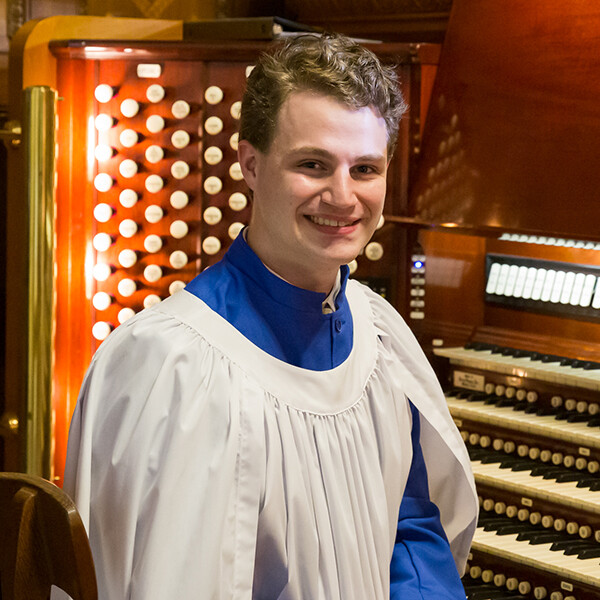St. Bartholomew's Choristers — Now Enrolling
Do you know a child who loves to sing?
St. Bartholomew’s Choristers is inviting participants for the 2025-2026 season. The Choristers rehearse twice weekly in preparation for regular services and occasional performances. Among other skills, the program emphasizes healthy vocal development, music education, teamwork, and leadership. St. Bartholomew’s Choristers is open to children of all backgrounds, ages eighteen and under. To schedule an introductory session, email Alexander Pattavina.
St. Bartholomew’s Chorister program was founded in 1995 by reaching out to children and families throughout the five boroughs of New York City. The program consists of thorough musical education and choral training, sustained by rehearsals throughout the week, liturgical singing, concerts, trips, recording projects and an annual late summer choir camp, lakeside in rural Connecticut.
Emphasis is placed on learning to read music in order to perform a wide range of repertoire, from chant to contemporary. Within their leadership role in liturgy, Choristers develop an active awareness of music, art, language, and history. At regular social events (choir camp, BBQs, talent show, pizza lunches), they form new and lasting friendships with other children from a variety of backgrounds, from across New York City and beyond.
To find out if the Chorister program might help develop and support the musical interests of a young person you know, please contact Associate Organist and Choirmaster Alexander Pattavina via email here.
Download our Chorister Brochure
Program Highlights
Vocal Training
Healthy vocal development is essential to the success of a young chorister. Each child receives tailored vocal training to ensure a healthy voice for years to come. The choristers are divided into sub-groups according to their vocal progress: Junior Choristers and Senior Choristers.
Music Education
Learning to read music is an essential element of the program, which makes it possible for children to perform advanced sacred repertoire ranging from ancient plainsong to works c0mposed recently. The choristers also study posture, aural training, music history, composition, conducting, and a number of church-related disciplines. Some even choose to learn to play the piano or the organ.
Progress
Developing one’s voice is a gradual process that can be extremely rewarding over the course of a year. Choristers are given special awards, prizes, and responsibilities to celebrate certain milestones in their progress as a musician. It is vital to children’s success to give constructive feedback and various tokens of their improvement. There is no time limit to making progress; each chorister studies at his or her own pace.

Activities and Accomplishments
- Annual Chorister Camp at Incarnation Center (Ivoryton, CT)
- Performances at the Cosmopolitan Club, the Lotos Club, Carnegie Hall
- Appearances on NBC’s Today Show, Good Morning America, and the Early Show
- Professional recordings with Pro Organo: Sing in exultation! (2001) and My song is love unknown (2002)
- Tours to Washington D.C., Burlington, VT, Chestertown, MD, Philadelphia, Baltimore, and abroad to England
- Collaborations with the Young People’s Chorus of New York City and Southwark Cathedral Choir
- Use of onsite facilities: pool, basketball court, playground, gym, and restaurant
- End-of-year choir parties

Little Voices
Little Voices is ...
- a musical playground environment for kids aged approximately 5-8
- a place to sing songs, play musical games, and try out musical instruments
- a time for learning about and listening to music, while developing an appreciation for sacred art
- an opportunity to meet and make friends
Little Voices meets every other Monday (4:45 pm-5:30 pm) in the Chapel, beginning in September 8.
This new program is especially a great way to introduce music to young kids who may one day wish to become a chorister! While Little Voices only meets on Mondays, participants will be invited to participate in a handful of events throughout the year, including the Christmas Pageant and Caroling on the Steps.
To sign up, email the Director of Choristers, Alexander Pattavina at





